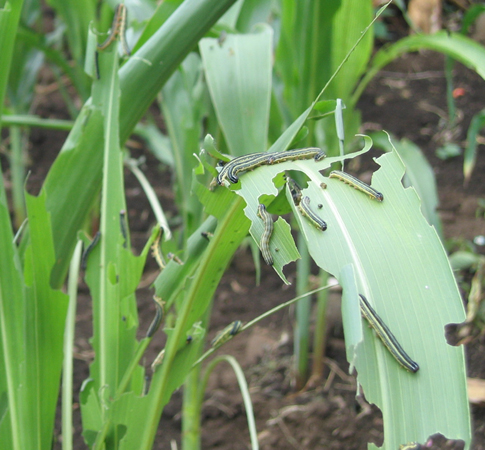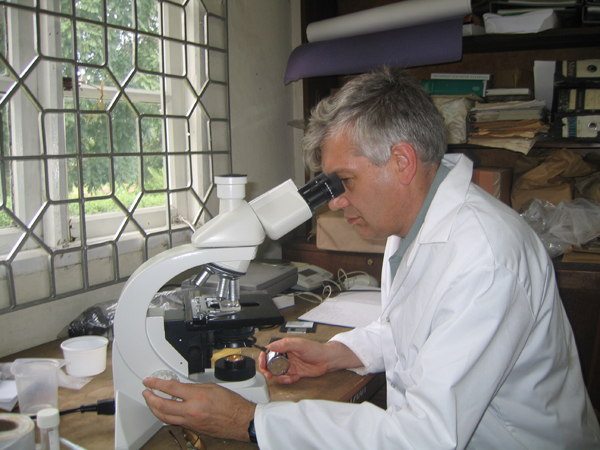
Insect pests are a major threat to food production everywhere, but they are especially devastating in Africa where poor farmers are unable to afford chemical pesticides. Concerns about the environmentally damaging effects of pesticide use are also driving EU efforts to develop new safer biological controls for crop pests. These biological pesticides or Biopesticides are a major focus of research worldwide as scientists strive to identify new ways of controlling pests. Now a team of scientists from the Natural Resources Institute of the University of Greenwich, Lancaster University, and Tanzania (EcoAgriConsult Ltd.) have made a novel discovery that could provide a new tool for controlling globally important crop pests.
Their research was looking at the better control of African armyworm, a major pest of food crops in sub-Saharan Africa. They are developing the use of a natural disease of the armyworm, Spodoptera exempta nucleopolyhedrovirus or SpexNPV, as a pesticide. This virus infects and kills the African armyworm caterpillars, but being specific to armyworm is harmless to other insects, humans or animals. The discovery started with the observation that, in common with nearly three-quarters of all insect species, some African armyworms carry with them a small passenger, a type of bacteria called Wolbachia. This bacterium has become of great interest to scientists because researchers discovered that when some insects, including mosquitoes, carry Wolbachia it protects them from infection by viruses. This is a potentially important discovery because mosquitoes act as vectors for many of the world's most devastating human diseases, including the widespread viral disease, dengue. Researchers believe that by spreading Wolbachia in mosquitos they can reduce the mosquitos' ability to transmit virus diseases such as dengue, this halting its transmission.
When the team began to study Wolbachia in armyworm they wondered whether the presence of Wolbachia might also protect African armyworm against SpexNPV, potentially hindering attempts to use it as an effective biopesticide. What they discovered surprised them: "Not only did Wolbachia fail to protect the armyworms against SpexNPV", recalls Professor Ken Wilson from the Lancaster Environment Centre, "but populations carrying lots of Wolbachia also had much higher virus levels and more caterpillars died naturally of viral disease". To confirm that the increased susceptibility to virus of Wolbachia-carrying armyworms was caused by the presence of the bacterium, the team took the insects back to the laboratory in the UK. There, they used antibiotics to 'cure' some of the armyworms of Wolbachia and then infected them with virus. Remarkably, they found that Wolbachia-carrying armyworms were between 6 and14 times more susceptible to SpexNPV than armyworms that had had their bacterial passengers removed. According to Dr Rob Graham, lead author of the Ecology Letters paper reporting these findings, "It means that SpexNPV is likely to be particularly effective as a biopesticide when Wolbachia is at naturally high levels in the Armyworm population". 
David Grzywacz of the University of Greenwich says it opens up the possibility of manipulating the prevalence of the Wolbachia in the field via the mass-release of Wolbachia-carrying armyworms that could be used to trigger faster outbreaks of SpexNPV controlling this major African pest. Excitingly if similar results are replicated in other major crop pests, then the mass-release of Wolbachia-infected might turn out to be an important new tool in the fight to control pests not only in Africa but globally and offer a new environmentally safer pest control approach for farmers in Britain and the EU.

